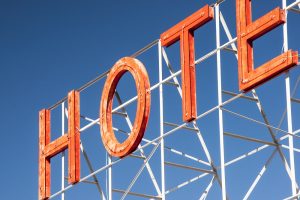July 6, 2017
Short-term Rentals Operating as ‘Illegal Hotels'
by Robert O’Halloran and Lynn Minges
Short-term rentals are becoming a sustained trend in cities and resort locations across the country and overseas. Companies like Airbnb, HomeAway and FlipKey operate like hotels in many locations. The American Hotel & Lodging Association (AHLA) and their state partner associations oppose this model.
Property owners do have the right to occasionally rent a room in their home and/or their house; however, there are corporations that are buying properties and/or apartments that are then rented on a short-term basis similar to a hotel. This has become the short-term rental business model.
Here’s the issue. These property operators are not adhering to and/or are not subject to the same rules and regulations as hoteliers.
Lodging operators are required to have operating licenses, safety inspections, be ADA compliant, etc. Therefore, the playing field for competition is not level.
More than a Competition Issue
Concerns voiced by lodging operators focus on unfair competition, consumer safety issues, prevention of job growth in the local economy, competition for affordable housing and the integrity of local neighborhoods. There is a place for this in the shared economy. However, if corporations are buying apartment buildings (floors, etc.) and then renting them out on a nightly basis like a hotel, they need to be held to the same standards as a hotel. Not only for competition but for customer risk and safety issues. As noted previously, short-term rentals are not regulated in the same way as a hotel. Therefore, if a short-term  rental property had an emergency situation, e.g., fire, guests might be injured and fire damage might be incurred because the fire safety standards would not be up to code for a commercial hotel property. In this scenario, short-term rental owners could be sued. Thus, policymakers will likely come under fire for not regulating what is clearly a hotel business.
rental property had an emergency situation, e.g., fire, guests might be injured and fire damage might be incurred because the fire safety standards would not be up to code for a commercial hotel property. In this scenario, short-term rental owners could be sued. Thus, policymakers will likely come under fire for not regulating what is clearly a hotel business.
Also of concern are the tax revenue implications for local communities. If these businesses—and they are businesses—are allowed to operate unregulated, they will not collect lodging/occupancy taxes used to support local economies, according to a March 2017 AHLA report.
Leveling the Playing Field
The AHLA believes there should be a level and legal playing field within the lodging sector, and that regulations and taxes on short-term rentals should be strictly enforced. AHLA supports the rights of property owners to occasionally rent out a room or their home, but commercial operators within the short-term rental industry should not be allowed to operate outside of the law. It should be noted, Airbnb and others have reached agreements with some state and local tax agencies across the nation. It is estimated that there are at least 200 such agreements.
These battles are being fought in local municipalities, and there is an argument that national legislation would best regulate this segment of the lodging industry. Eighty-one percent of Airbnb’s U.S. revenue—$4.6 billion—comes from whole-unit rentals (rentals where the owner is not present during the time the rental occurs), rising from 78 percent the prior year. This is clearly the goal of their business model, according to 2017 research by CBRE Hotels.
Regardless of whether rules and regulations should be set for short-term rentals by local, state or federal government, they should indeed be implemented and enforced. Operating any business requires standard operating procedures to protect the business and those it serves; short-term rentals should not be exempt.
Robert M. O’Halloran is the director of the College’s School of Hospitality Leadership and
Lynn Minges is the president & CEO of the North Carolina Restaurant and Lodging Association.




